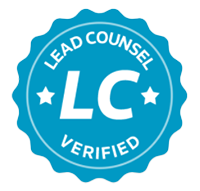Wrongful Death Lawyer
Compassionate Legal Advocacy from The Law Office of Miller & Gaudio PC
Experiencing the sudden loss of a loved one because of someone else’s negligence or wrongful conduct is one of life’s most devastating events. Amidst deep grief, families often face significant financial pressures, unanswered questions, and complex legal challenges. At The Law Office of Miller & Gaudio PC, we stand beside grieving families in New Jersey, offering unwavering legal guidance and compassionate advocacy during this difficult time.
Our wrongful death practice is designed to address every aspect of your case—from determining liability and gathering evidence to calculating damages and negotiating the best possible outcome. We serve as your legal champions, providing skilled representation and empathetic support.
What Is a Wrongful Death Lawsuit?
Purpose and Scope
A wrongful death lawsuit is a type of civil claim filed against individuals or entities whose negligent or intentional actions caused a person’s death. The objective is to obtain financial restitution for the surviving family members to help cover emotional, financial, and lifestyle impacts resulting from their loss.
This legal action allows families to hold responsible parties accountable and gain the resources necessary to move forward, including compensation for lost income, medical expenses, funeral costs, and the intangible loss of love and companionship.
Civil Proceedings vs. Criminal Cases
Wrongful death claims are civil in nature and independent of any criminal prosecutions related to the same event. Criminal cases result in penalties like incarceration or fines based on state action. In contrast, wrongful death suits seek monetary damages for survivors. A guilty verdict in criminal court is not required to file a wrongful death lawsuit.
Who Is Eligible to File a Wrongful Death Claim in New Jersey?
Legal Eligibility
New Jersey law limits the right to pursue a wrongful death lawsuit to specific individuals. The lawsuit is usually initiated by the personal representative (executor or administrator) of the decedent’s estate. Eligible beneficiaries typically include:
- The surviving spouse
- Biological or adopted children
- Parents of the decedent (only if no spouse or children are present)
- Siblings, nieces, nephews, or other dependents under certain circumstances
Addressing Complex Family Structures
Modern family dynamics—such as blended families, stepchildren, and intestate estates—can complicate eligibility and distribution. We guide clients through these complexities, ensuring all rightful heirs are identified, included, and fairly represented.
Causes of Wrongful Death Cases We Handle
Medical Malpractice
Deadly mistakes in medical settings include:
- Surgical errors (wrong-site, tool retention, missteps)
- Misdiagnoses, delayed diagnoses, or failure to act
- Birth injuries from prenatal or delivery errors
- Anesthesia complications, medication overdoses, and prescription errors
Motor Vehicle Collisions
We pursue claims in:
- Car, truck, and motorcycle accidents caused by DUI, distracted driving, or speeding
- Pedestrian and bicycle fatalities due to driver negligence
- Multi-vehicle pileups and commercial vehicle incidents
Workplace and Construction Accidents
These fatalities often involve:
- Falls from heights and scaffolding collapses
- Defective machinery and lack of safety equipment
- Hazardous materials exposure
- Employer negligence and OSHA violations
Premises Liability
Fatalities resulting from unsafe premises include:
- Drownings in unguarded pools
- Electrocutions from exposed wiring
- Fires from faulty building components
- Slip-and-fall deaths due to poor maintenance
Product Liability
These cases involve fatalities due to:
- Defective automotive parts or vehicle design flaws
- Faulty medical devices or implants
- Hazardous household appliances or consumer products
How to File a Wrongful Death Claim
Step 1: Case Evaluation
We begin with a thorough initial consultation and in-depth case review. Documents examined include the death certificate, police report, medical and autopsy records, witness statements, and employment history. We assess liability factors and potential defendants.
Step 2: Evidence Investigation
We build a compelling case with help from investigators and experts. This may involve accident reconstruction, medical expert opinions, toxicology reports, property inspections, and witness interviews. We also evaluate digital evidence such as traffic camera footage or smartphone data.
Step 3: Legal Filing & Deadline Compliance
In most cases, New Jersey imposes a two-year statute of limitations from the date of death. Certain circumstances, such as governmental defendants or latent injuries, have different filing periods or notice requirements. We ensure all paperwork is filed accurately and ahead of deadlines.
Step 4: Formal Discovery Process
During discovery, we exchange documents with opposing parties, conduct depositions, and secure expert testimony. Evidence may include internal corporate communications, design schematics, or personnel records that shed light on negligence or misconduct.
Step 5: Settlement Negotiations
Our team engages with insurers and defense attorneys to negotiate a fair settlement. We leverage a combination of evidence, legal precedent, and negotiation skills to advocate for maximum compensation. We refuse any settlement that falls short of fully honoring your family’s loss.
Step 6: Trial Preparation and Litigation
If settlement talks stall, we prepare for trial. This includes jury selection strategy, direct and cross-examinations of witnesses, presentation of demonstrative evidence (photographs, diagrams), and closing arguments. We bring both legal expertise and personal empathy to the courtroom.
Step 7: Collections and Distribution
After a successful verdict or settlement, we assist with recovering awarded funds, resolving liens, and distributing proceeds to beneficiaries per estate law.
What Compensation Can Be Sought in a Wrongful Death Case?
Economic Damages
Compensatory damages typically include:
- Medical costs incurred prior to death
- Funeral and burial expenses
- Lost wages and future earning capacity
- Loss of household services (childcare, eldercare, maintenance)
- Loss of retirement benefits and health insurance
Financial analyses are conducted by certified economists and vocational experts to quantify these losses precisely.
Non-Economic Damages
Surviving family members may be eligible for:
- Emotional pain and mental anguish
- Loss of companionship, guidance, and protection
- Loss of consortium for spouses
- Post-traumatic grief and trauma
Although quantifying emotional loss is subjective, New Jersey courts recognize its importance and allow significant non-economic awards where warranted.
Punitive Damages
In cases where the defendant’s conduct was particularly reckless or intentional—such as drunk driving or willful misconduct—punitive damages may be awarded to punish and deter similar behavior. We pursue punitive awards whenever the facts support them.
Why Hire a Wrongful Death Attorney
Expert Guidance Through Complex Processes
Wrongful death cases demand rigorous legal strategies, adherence to New Jersey statutes, and careful handling of procedural steps. Our expertise allows you to focus on healing while we manage the legal process.
Balanced Negotiation With Insurers
Insurance companies often leverage deadlines and intimidation to pressure families into lowball settlements. Our advocacy ensures you have a strong legal partner fighting for your full rights and compensation.
Compassionate Client Support
We understand every wrongful death case is profoundly personal. Beyond legal service, we offer thoughtful support so you always feel respected and understood. Clear communication, regular updates, and emotional sensitivity are hallmarks of our client care.
Proven Track Record
Our firm has secured multi-million dollar settlements and verdicts for New Jersey families. We focus on results and accountability, backed by our commitment to justice and client satisfaction.
Understanding the Timeline of a Wrongful Death Case
- Initial Consultation and Case Review
- Evidence Gathering and Investigation
- Filing of Complaint (within statute of limitations)
- Discovery and Expert Consultations
- Mediation and Settlement Negotiations
- Trial Preparation (if needed)
- Verdict or Settlement
- Fund Distribution and Case Closure
How The Law Office of Miller & Gaudio PC Helps
Compassionate Support from Day One
We start by listening. From your first consultation, our team takes time to understand your story, your loss, and your legal goals. Every case is personal—and we treat it that way.
Full-Service Legal Representation
You won’t navigate the legal process alone. We handle every aspect of your wrongful death claim, including investigation, evidence gathering, court filings, negotiations with insurers, and trial preparation if needed.
Clear Communication and Respect
We explain each step in plain language, provide regular updates, and are always available to answer your questions. You deserve transparency and respect throughout the process.
Focused on Maximum Compensation
We fight to recover the full compensation your family is entitled to—including lost income, medical expenses, funeral costs, and emotional damages. If insurers push back, we push harder.
No Legal Fees Unless We Win
You pay nothing upfront. We take wrongful death cases on a contingency fee basis, meaning you owe us nothing unless we secure a financial recovery for your family.
Frequently Asked Questions About Wrongful Death Claims
What qualifies as a wrongful death in New Jersey?
A wrongful death occurs when someone dies due to another party’s negligent, reckless, or intentional actions. Common causes include car accidents, medical malpractice, workplace injuries, defective products, or unsafe property conditions. If the person could have filed a personal injury claim had they survived, the family can typically pursue a wrongful death lawsuit.
Who can file a wrongful death lawsuit in New Jersey?
In New Jersey, the wrongful death lawsuit is usually filed by the personal representative of the deceased’s estate. Eligible beneficiaries include the surviving spouse, children, parents, or other financially dependent family members. If there is no will, the court may appoint an administrator to act on behalf of the estate.
What compensation can families receive in a wrongful death case?
Compensation may include medical bills, funeral and burial expenses, loss of the deceased’s income and benefits, loss of companionship and emotional support, and the value of services the deceased provided. In certain cases, punitive damages may also be awarded.
How long do I have to file a wrongful death claim in New Jersey?
The statute of limitations for wrongful death claims in New Jersey is generally two years from the date of death. If you miss this deadline, you may lose your right to file a claim. It’s important to speak with an attorney as soon as possible to preserve your legal rights.
Can I file a wrongful death claim if the at-fault party is facing criminal charges?
Yes. A civil wrongful death lawsuit is separate from any criminal proceedings and can proceed regardless of whether the defendant is being prosecuted. In fact, the standard of proof in civil court (preponderance of the evidence) is lower than in criminal court (beyond a reasonable doubt).
Contact The Law Office of Miller & Gaudio PC Today
No amount of compensation can bring back your loved one, but a wrongful death claim provides essential justice and financial support. We are honored to guide grieving families with legal excellence and compassion throughout every stage of the process.
Reach out today for a free, confidential consultation with one of our experienced wrongful death attorneys. We’ll evaluate your case, explain your rights, and strategize a path forward—without any upfront costs.
Let us stand with you during this difficult time. Allow us to fight for your future and your family’s peace of mind.


